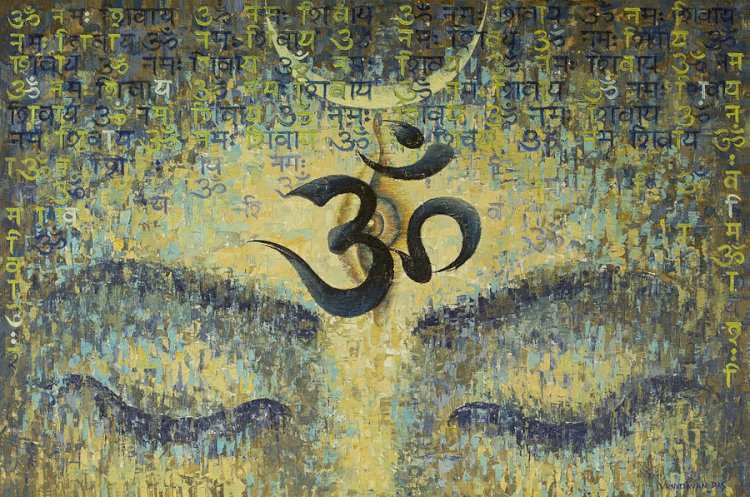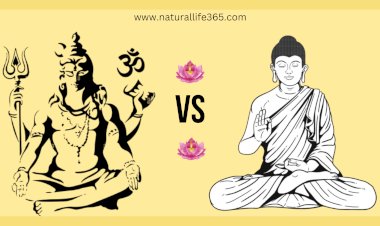Teachings of Hinduism
Unlock the wisdom of Hindu teachings. Explore practical insights to enhance your daily life with the essence of Hinduism.

The Dharma, currently known as Hinduism, is a lifestyle that tries to teach the values that a human being must (or should have) to have a fulfilling life. In other words, Hinduism prescribes eternal duties such as honesty, refraining from harming living beings, patience, tolerance, self-control, virtue, and compassion, among others.
That is why in Bharat (India), Hindus do not describe Hinduism as a religion but rather, as I said at the beginning, it is a way of life. In this way, Hinduism tries to find answers that, afflict the Human being, in a very logical and rational way. That is why in this blog, I will try to address some basic teachings of Hinduism that, with practice, you can apply in your day-to-day life.
Lasting Happiness Comes From Our Divine Nature
According to Vedanta (one of the six schools of Hindu philosophy), we are divine at the core of our being, but it remains hidden from us. Animal nature, human nature, and divine nature are intertwined in our personalities. Divinity remains an unknown component in us until we transcend our animal nature and our human nature and begin to manifest our divine nature.
All happiness and lasting knowledge come from our divine nature. Human life acquires meaning to the extent that this hidden divinity manifests itself. Sri Shankaracharya (Indian Vedic scholar and teacher) glorifies human birth and says that not striving for Self-knowledge is tantamount to killing oneself since one holds fast to unreal things of the world.
You can also read Understanding The Essential Nature of Hinduism

If the crookedness forges another link in the chain that unites us to the world, straightness helps us manifest our hidden divine qualities. Bhagavad Gita lists arjava, or uprightness or simplicity, as a sign of knowledge. Uprightness is a virtue that an aspirant needs to cultivate assiduously on the path to perfection.
Every action or thought leaves a subtle impression on our mind, prompting us to repeat the action or thought. This effect may not seem to be of consequence in the beginning, but the twists in character and its power only become apparent when one begins to turn a new leaf. Then one begins to appreciate the situation of Duryodhana (one of the main antagonists of the Hindu epic Mahabharata).
A bunch of bad impressions, he let his notorious uncle strengthen them with his evil designs. When the situation got out of his control, Duryodhana commented, “I know what dharma is, but I am not able to practice it. I know what adharma is, but I am not able to refrain from it."
Everything may not be as crooked as Duryodhana, but shadows are inherent in everyone until the dawn of self-knowledge. In other words, perfect alignment in thought, word, and deed is possible only when we achieve perfection. In everyday life, we know how difficult it is to carry out resolutions: acquire a new good habit or leave a bad one. Where lies the difficulty? The problem arises from the kinks in our character or the knots in our minds.
Any attempt to discipline the mind invites its instant resistance since by nature it likes to follow the path of least resistance. That is, it always likes to tag itself to sense organs and their respective sense objects. This link applies not only to gross objects but also to subtle enjoyments. A weak will and a dormant buddhi (intellect) are responsible for this tendency of the mind. The first step towards uprightness is disciplining the mind and the senses and freeing the will from their hold.

Options and Consequences
When we make decisions we must be prepared to bear their consequences. But very often we are happy to make the decisions but we are not prepared to face the consequences. Hindu scriptures are full of cases where both divine and human characters make decisions and then struggle to accept their consequences.
Those choices that are made with selfish motives often cause problems. When the choice we make is associated with profit, pleasure, hate, or revenge, we will surely end up with bad consequences.
Choices made with disinterest will always have a good result. When we don't care about the outcome of the choices we make, it helps us get through the consequences. This is because we are more interested in the journey and not the destination.
When we are ready to take responsibility for the choices we make, we show maturity and this helps us deal with the consequences. But most of the time we make decisions to satisfy our selfish desires and quite often we forget that we are using other people for our selfishness.
It is better to avoid choices and consequences by being the river that flows. Don't get attached to anything or anyone. Grab anything that gets in your way and happily drop them on the shore when they're ready to be dropped. Do not take anything by force with you. Let go when it's time.
Stop looking outside for happiness, then we can completely avoid choices and consequences.
Simplicity
Sri Shankara explains arjava (sincerity) as simplicity or the absence of deviousness. True simplicity involves matching one's words with one's thoughts. Simplicity, therefore, goes far beyond our way of dressing or our habits. Perfect alignment in thought, word, and deed constitutes true simplicity.

Sant Dnyaneshwar (Indian Saint, Poet, Philosopher, and Yogi) elaborates a bit more on Arjava. In his famous commentary on the Gita, called Jnaneshwari, he gives the following meanings for arjava:
- Favor everyone equally with no likes or dislikes: As a corollary, this is equivalent to loving everyone equally.
- Not making a distinction between what is “mine” and what is “of others”: The lack of simplicity arises mainly from selfishness and the feeling of “I” and “mine” that characterize human life. How can we get rid of our "me" and "mine"? Certainly, it is not easy to drop this sense of "immature ego" all of a sudden.
- A righteous mental attitude: According to Jnaneshwar, a righteous person does not hold a grudge against anyone. His mental attitude is straight as the sweep of the wind and is free from desire and doubt. He does not leash his mind, nor does he set it absolutely free. An aspirant, however, needs to keep his mind in check for a long time, until it is purified enough to start acting like his true friend.
- A disciplined sensory system: Your sense organs are pure and free from deception. The undisciplined mind and senses act as our enemies and deceive us with a sense of pleasure, making us believe that this is the goal of life. With your senses controlled, a man of knowledge is not fooled by his senses. For Arjuna, Sri Krishna prescribed the control of the senses as the preliminary discipline to get rid of desires.
Regarding the control of our thoughts/mind, the author James Allen explains it very well in his book As a Man Thinketh and although it is not Indian literature, it is a very good example for those who seek wisdom and tranquility in a turbulent and hostile world like the current one.
For James Allen, our thoughts are the seeds of what will happen in our lives. The human mind can be compared to a garden and its cultivation is, at the same time, work and a spiritual path that Allen presents to us with true mastery. Taking care of the garden of our thoughts leads us, naturally, to a full and happy life.
In this way, As a Man Thinketh not only encompasses the entire being of a man but is so comprehensive as to reach every condition and circumstance of your life. A man is literally what he thinks, his character being the sum total of all his thoughts.
You can also read Why Do Hindus Have Altars at Home?
If you value these free online resources provided by Natural Life 365, please consider supporting my website by sharing the blogs ![]()
DISCLAIMER:
Some of the links in this content may be affiliate links. This means that if you click on one of the links and make a purchase, I may receive a commission (at no extra charge to you). However, I only recommend products that I personally use and have tested myself. Also, understand that I have taken reasonable steps to ensure that the information on this content is accurate, but I cannot represent that the website(s) mentioned in this post are free from errors. Please, check the Affiliate Disclosure at the bottom of this website.








































